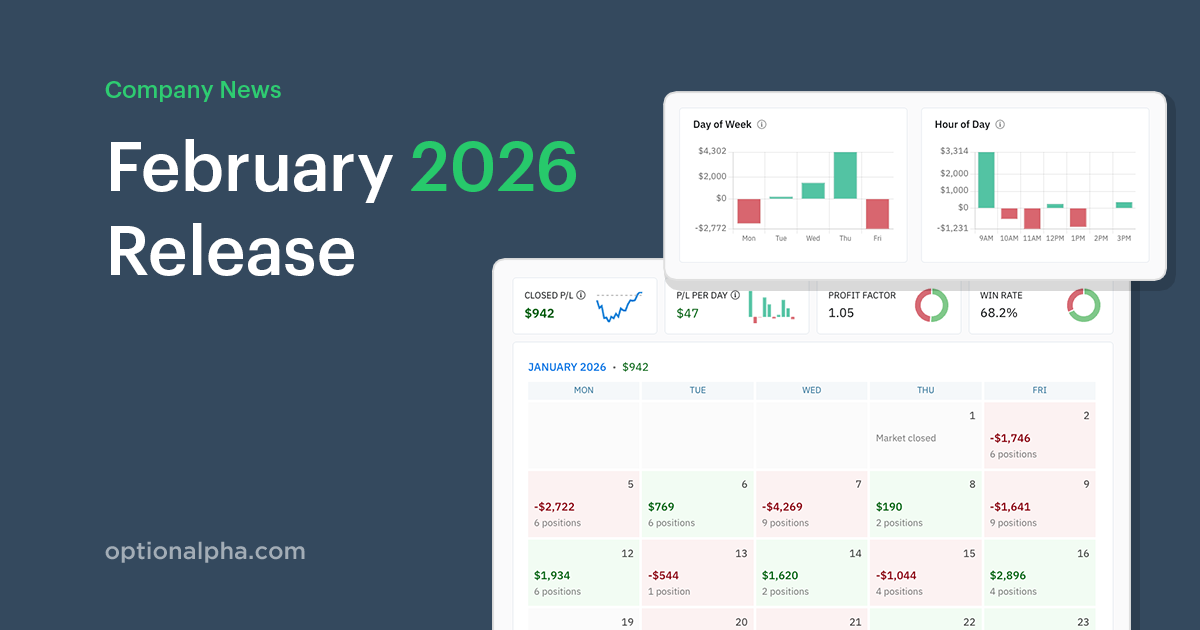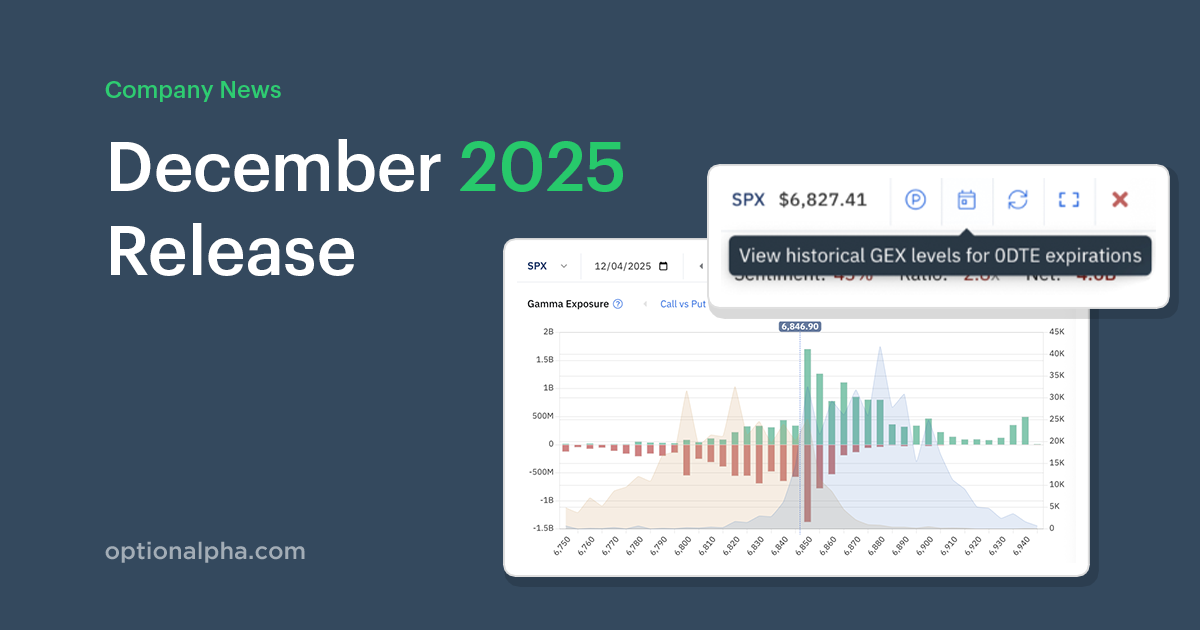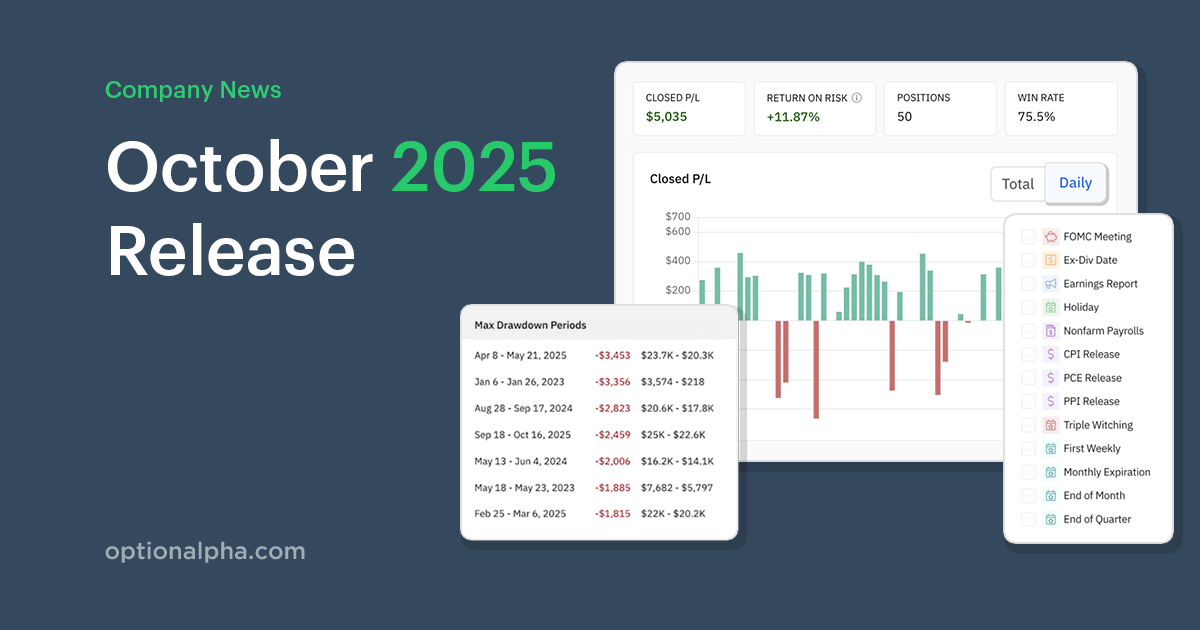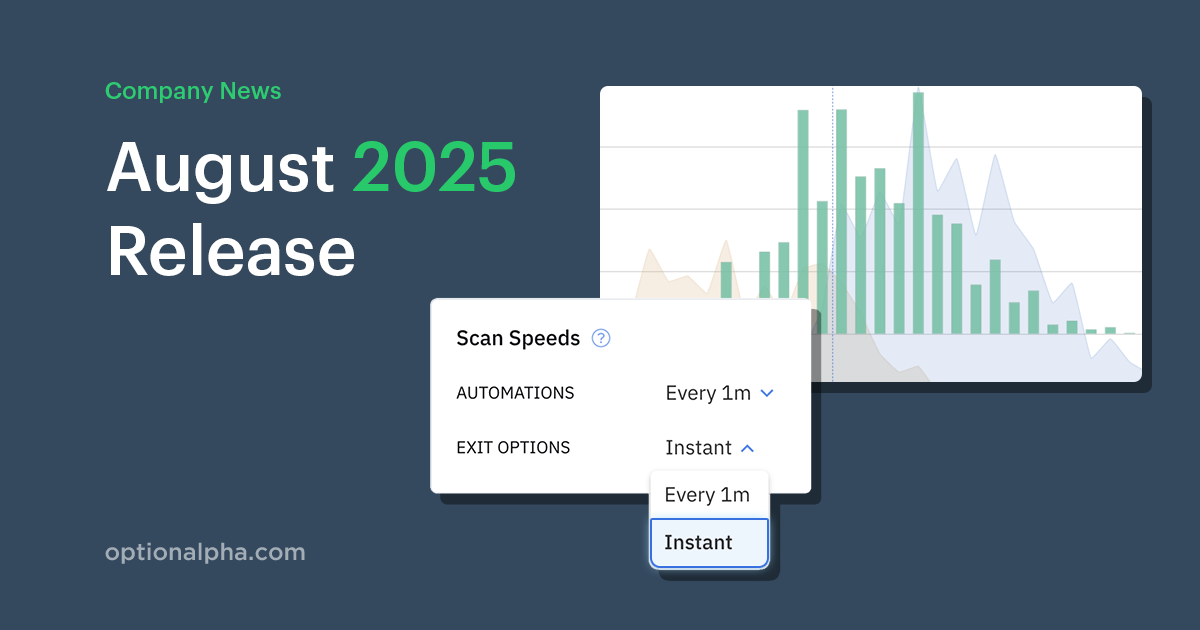Today, we shine a light on Charles to show our gratitude and appreciation for his unwavering dedication to helping traders in the Community. As with all great leaders, what we love about Charles is the combination of his attitude toward helping and serving others (without asking for anything in return) and the deeply analytical mind that he displays with well-thought and detailed responses and templates.
These qualities, I believe, are best displayed in posts such as his "Mass Update Exit Options," where he openly shared an automation purely to help others mass update exit options after new features were released, and "Comparing RSI Symbol Loop" where he went out of his way to help someone else with detailed screenshots and explanations at every step. Plus, I've personally highlighted his bot templates in live workshops as examples of how to properly document and share templates so they are helpful to other traders who clone them.
In all of these examples, and many more like this, he could have easily skimmed over questions and not replied or posted lackluster bot templates with thin descriptions; but he didn't. Instead, he decided to serve and help fellow traders in a way that was productive and supportive for everyone. His example has personally helped me strive to take extra time and attention when helping others.
Charles has been a constant and reliable force at Option Alpha for more than two years since his first introduction post in March of 2021, and we are honored to spotlight him. So, we asked Charles some questions to learn more about him and his journey, and here's what he said:
Who is Charles? What's your story up until this point in your life?
I am a father, husband, veteran, and civil/environmental engineer turned data analyst.
I was born into a military family. We moved around a bit when I was little, hitting a few places on the U.S. east coast, then we spent some time in Europe before settling down in Northern Virginia, just outside Washington D.C.
I studied civil and environmental engineering at the Virginia Military Institute with the intention of focusing on structural engineering and joining the Army Corps of Engineers. I ended up focusing on water and wastewater treatment and joined the Naval Civil Engineer Corps as a reserve officer.
I’ve worked on some interesting engineering projects. I can give you a detailed tour of some of the underground infrastructure in D.C. I’ve worked on what is essentially an underground $6 billion Brita filter providing drinking water to the Bronx and Manhattan. For the Navy, I spent some time in Afghanistan and, more recently, had the privilege of planning certain engineering and logistical aspects of the 2020 presidential inauguration.
Slowly my career transitioned from traditional engineering projects and focused on data analytics. I’ve moved entirely away from engineering and now develop reports and analysis for the federal government. 2 + 2 is still 4. Instead of cubic yards of concrete, it’s now financial expenditure.
I now live with my wife, kid, dog, and cat in the suburbs of Northern Virginia.
Why did you start trading?
The short answer is to put my money to work for me. Savings accounts are great for rainy days or emergencies, but they’re not a great way to develop financial wealth or independence. I’ve been “paper” trading since I was five or six years old when I would sit down with the newspaper business section, searching for different tickers and writing down closing prices in a journal.
What challenges did you encounter when you started trading?
My first trade, outside of contributing to a retirement plan, I bought shares of GM in 2008. That did not work out well. Aside from terrible timing, my main challenge has been managing expectations. A few times, I thought I had a foolproof strategy. Not necessarily to get rich quick, but I was so hyper-focused and enthusiastic that I could not see ways the strategy could lose. I would get tunnel vision on that strategy and lose sight of other ways to create a profit or manage risk.
Second, I had no patience when I first started. I would constantly refresh my browser or app to see if my position was up or down. For trades that started and stayed green, it was fun. For trades that went red, it usually meant I would close them without giving the market a chance to work itself out.
What did you do to solve these problems?
As I got older, I learned more patience with my trading. Having a kid helped with that. Occasionally, things don’t work as fast as you’d like with the market or with a toddler; they aren’t that different sometimes. Both take time and are often illogical.
To help with the strategy tunnel vision, I spent a lot of time on education during the pandemic. Buy-and-hold equity strategies weren’t cutting it, but I didn’t know enough about options to comfortably jump into the deep end.
A google search led me to Option Alpha before it was a trading platform, where I ran through the instructional videos. I ran through a bunch of tastylive material as well, found a lot of other channels on YouTube, and got a handful of books from my library. Learning about all the strategy types available between equities and options granted me a broad vision of the different ways to invest and manage risk.
I continue to learn every day. I’ve been taking Python tutorials to dive deep into the data available from Option Alpha and the Tradier API on top of the DAX/ PowerBI analysis I’m running.
How has your trading philosophy changed since you started autotrading with Option Alpha?
Before autotrading, my philosophy could be equated to a spray-and-pray strategy where I would place trades without a real understanding of the underlying mechanics, hoping things would work out. Now, I’ve fully drank the kool-aid when it comes to trade small, trade often. And even though this is baked into the theory, I think a third clause should be explicitly stated: trade probable.
Now that I understand the mechanics better and don’t have to manage each trade personally, it’s much easier to make many small, high-probability trades.
What advice would you share with someone considering a similar path?
Trade small, trade often, trade probable. On top of that, I’ve found it helpful to have a written plan for not only trading, but also for the criteria to take a bot live and when/if to increase allocations.
For example, I will only take a bot live if the following criteria are met:
- The bot has been running for a minimum of six months.
- The bot has opened at least 100 positions.
- The bot has a win rate of at least 80% and a profit factor of at least 1.5.
When the bot goes live, its initial position size will be limited to 1 contract until at least 20 positions have been opened (as expected), regardless of their outcome.
At that time, I can increase position allocation to be no more than 5% of the bot’s available capital.
That’s just an example, but I’ve found it very helpful to write rules out and stick to them.
How do you see trading fitting into your bigger life goals?
Trading both scratches an intellectual itch and is a means to an end. I thoroughly enjoy my current full-time job but wouldn’t mind opening a business intelligence consulting firm. On top of that, my family is in the process of expanding, and I dream about owning a small, remote beach house.
Optimistically, trading can help fund start-up capital, pay daycare expenses, and be a downpayment.
What's next for you? What does the future look like?
I’m writing this on Friday afternoon. I’m going to shut down my computer and take my dog for a walk. But in terms of trading, I will continue learning and continue my cradle-to-grave position analysis, looking for opportunities.
I'm optimistic about the future. Ideally, I’ll start my days by walking my dog, get home to do 15-30 minutes of simple market analysis, wake up my kids and take them to school, make a pot of coffee and take it to my wrap-around porch overlooking the beach before starting my workday as the owner/ operator of my own company, all the while autotrading in the background. We’ll see.

As always, if you see Charles around the community, please pass along your thanks and appreciation.





.png)








